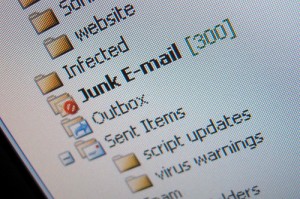 Every year we send out literally dozens of warning e-mails, and continue to do so, because despite the frequent warnings, people still get caught falling for these tricks.
Every year we send out literally dozens of warning e-mails, and continue to do so, because despite the frequent warnings, people still get caught falling for these tricks.
Take note of the following scam from fraudsters claiming to be from SARS.
Emails are going out to university (and private addresses) seemingly coming from “SARS” informing them that they have a refund waiting for them. (Wow! a tax refund) Clicking on the hyperlink in the email takes you to a fake “e-filing” site that has hyperlinks for the four big South African banks and instructions to log on to your Internet banking site for “confirmation of your details”. When you follow the Nedbank link (as an example), you are taken to a copy of the Nedbank internet banking site that asks for profile, pin and password. Supplying these takes you to a second page that asks you for your mobile number. Submitting information on this page takes you to a page that requests the reference number sent to your cellphone.
Do not authorise any cellphone message that comes through if you end up in the above situation. Furthermore, do not click on any hyperlinks in emails or divulge your account or mobile number details to anyone over the phone or via email. Banks will never ask you to access internet banking through a link in an email, neither will banks ever ask for your mobile number when you access internet banking.
Another particulary sneaky phishing attack surfaced today.
It comes from “Linda Perez” and has a subject line of “Administrator (Sorry for the inconvenience)”
It asks you to contact the “sender” with your username and password so they can “expand your mailbox manually”
Of course this is a phishing attack, and you should never respond to such mails.
Do not respond, flag the sender as Junk Mail and delete the message.
ARTICLE BY DAVID WILES




 The opposite of spam is, believe it or not, ham. In other words e-mails you WANT to receive.
The opposite of spam is, believe it or not, ham. In other words e-mails you WANT to receive.